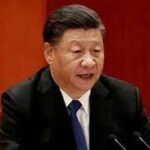In a significant development aimed at reviving Sri Lanka’s economy, the World Bank has disbursed the first tranche of USD 250 million as part of a USD 500 million budgetary and welfare support package. The island nation, grappling with its worst economic crisis since gaining independence from British colonial rule in 1948, welcomes this financial aid as a crucial step towards stabilizing its finances and fostering growth.
Last week, the World Bank approved a total of USD 700 million in budgetary and welfare support for Sri Lanka, acknowledging the urgent need for intervention in the country’s deteriorating economic situation. The disbursement of the first tranche is seen as a promising development, signaling the beginning of an effort to alleviate the country’s financial burdens and stimulate economic recovery.
Shehan Semasinghe, the state minister of finance, expressed his satisfaction with the disbursement in an official statement. He confirmed the receipt of the initial USD 250 million and emphasized its significance in supporting Sri Lanka’s budgetary requirements. The country has been grappling with mounting debt and struggling to address the severe impact of the economic crisis.
The financial aid from the World Bank aims to provide much-needed relief to Sri Lanka’s economy, which has been burdened by high debt levels and a declining growth rate. The disbursement will contribute towards alleviating fiscal pressures, supporting public expenditure, and addressing social welfare needs. These measures are crucial for the country to stabilize its economic situation and lay the foundation for sustainable growth.
Sri Lanka’s economic woes have been exacerbated by a combination of factors, including the COVID-19 pandemic, political instability, and high levels of public debt. The country has faced challenges in managing its external debt repayments and has been seeking assistance from international organizations to mitigate the impact of the crisis.
The World Bank’s support package acknowledges the severity of Sri Lanka’s economic challenges and seeks to provide a comprehensive solution to address the crisis. In addition to budgetary support, the package also includes measures to enhance social welfare programs, which are crucial for safeguarding vulnerable populations and promoting inclusive growth.
The disbursement of the first tranche is expected to have a positive impact on Sri Lanka’s financial stability and investor confidence. It demonstrates the World Bank’s commitment to assisting the country in its path towards economic recovery and development. The funds will be utilized to strengthen the country’s financial position, improve governance, and implement structural reforms to enhance competitiveness.
The Sri Lankan government has been working towards implementing structural reforms to revive the economy and attract foreign investment. The financial support from the World Bank will provide a much-needed boost to these efforts. It will enable the government to implement crucial policy measures aimed at improving the business environment, enhancing infrastructure, and fostering private sector development.
However, it is important to note that the disbursement of funds is only the first step towards economic recovery. Sri Lanka still faces significant challenges in addressing its fiscal imbalances, reducing public debt, and promoting sustainable growth. The government will need to continue implementing comprehensive reforms and prudent fiscal policies to ensure the effective utilization of the financial assistance and pave the way for long-term economic stability.
The disbursement of USD 250 million as the first tranche of the World Bank’s budgetary and welfare support marks an important milestone for Sri Lanka’s economy. This financial aid will provide much-needed relief to the country, which is grappling with its worst economic crisis in decades. The funds will be instrumental in stabilizing the economy, supporting public expenditure, and promoting social welfare programs. While the disbursement is a positive development, sustained efforts and comprehensive reforms will be essential for Sri Lanka to achieve long-term economic stability and sustainable growth.




